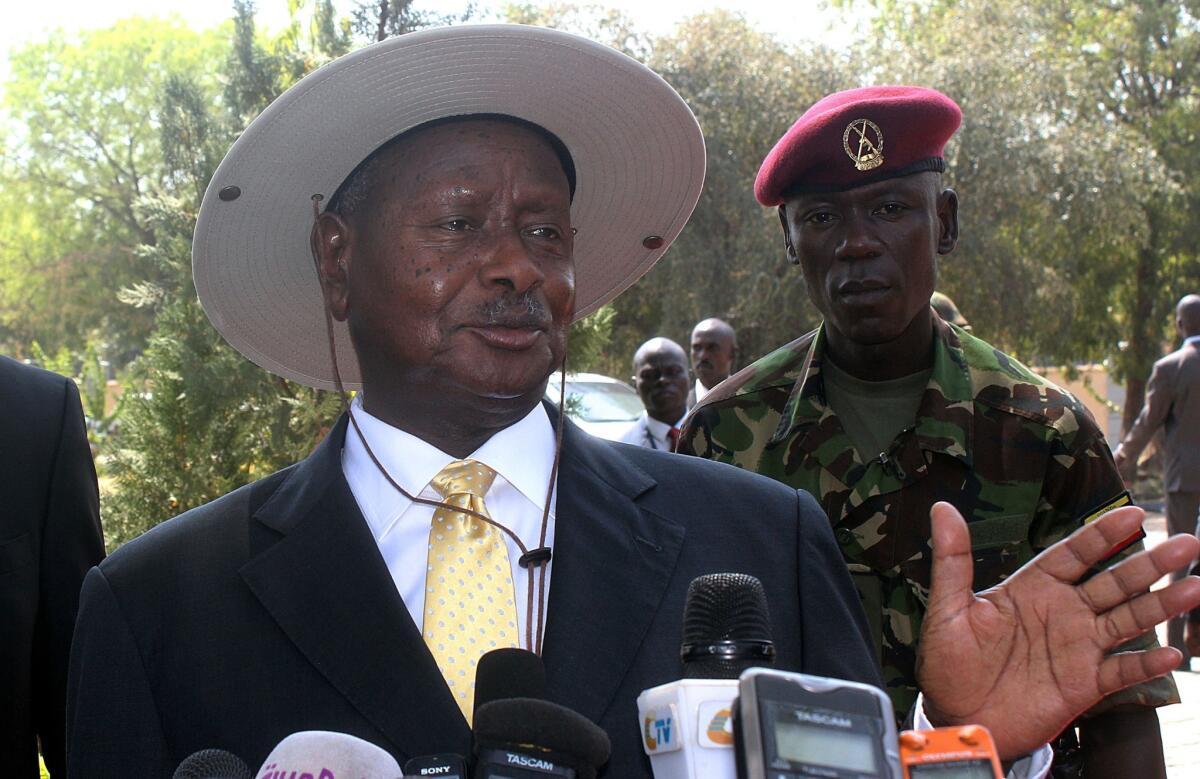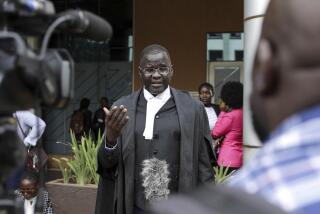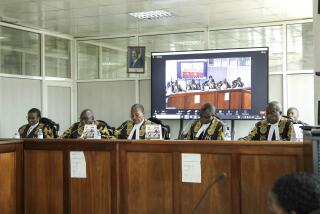Ugandan president slams gays while refusing to sign anti-gay bill

- Share via
JOHANNESBURG, South Africa -- Ugandan President Yoweri Museveni refused to sign into law a tough anti-homosexual bill passed by parliament last month. But the tone of his remarks offered little cheer for the country’s beleaguered gay rights groups.
In a letter accompanying his decision, Museveni described gays and lesbians as abnormal, mercenary and a product of “random breeding” in the West when “nature goes wrong.” He suggested that young homosexuals were lured by money and needed rescuing.
The measure would have provided life sentences for some homosexual acts, although the original bill proposed the death penalty.
Museveni’s comments, reported in Uganda’s Daily Monitor, came days after another African leader, Nigerian President Goodluck Jonathan, signed a law banning all gatherings of homosexual people and outlawing same-sex marriage. Homosexuality was already illegal in Nigeria, as it is in 38 African countries, according to Amnesty International.
News reports out of Nigeria said a 28-year-old man who confessed to a single homosexual act seven years ago was recently lashed 20 times in northern Bauchi state, where Islamic or sharia law is in place. The man could have been stoned to death, but Judge Nuhu Mohammed said he had shown remorse for an act committed long ago, the Associated Press reported.
In Uganda, Museveni wrote an eight-page letter to the parliamentary speaker, Rebecca Kadaga, saying the anti-homosexual measure was invalid because it was passed without a parliamentary quorum, according to the Daily Monitor report. He did not rule out accepting a revised version of the law in future.
Museveni said in his letter that he had advised lawmakers who backed the bill to wait until the government had studied it in-depth, adding that the governing National Resistance Movement lawmakers would make a decision on the best approach to the law.
Enacting tough anti-homosexual legislation is seen as a populist political measure in many African countries. In many parts of the continent, societies tend to be socially conservative and deeply religious and homosexuality is often characterized as being un-African and ungodly.
While rejecting the Uganda’s anti-gay bill, which attracted strong criticism in the West, Museveni was careful not to be perceived as endorsing homosexuality.
“You cannot call an abnormality an alternative orientation,” he said. “It could be that the Western societies, on account of random breeding, have generated many abnormal people.”
Aside from young people who were homosexuals for “mercenary” reasons, he said lesbians were often women who failed to find a husband and were “sexually starved.”
A Ugandan human rights group, the Civil Society Coalition on Human Rights and Constitutional Law, argued recently that the Ugandan bill was a waste of police resources and would be impossible to enforce. Prime Minister Amama Mbabazi also opposed the law.
Ugandan gay activist Frank Mugisha said Museveni’s comments in his letter promoted hatred of gay people, AP reported.
But threats by Western nations such as the United States and Britain to cut aid to countries with harsh anti-homosexual laws are seen so negatively in Africa that they risk backfiring and boosting support for tough measures, according to critics, who say such positions reinforce a common perception that the West is exporting homosexuality to African.
[For the record, 1:38 p.m., Jan. 17: An earlier version of this post identified the speaker of parliament as Helen Kawesa. She is a spokeswoman for parliament; the speaker is Rebecca Kadaga.]
Twitter: @latimesdixon
More to Read
Sign up for Essential California
The most important California stories and recommendations in your inbox every morning.
You may occasionally receive promotional content from the Los Angeles Times.













